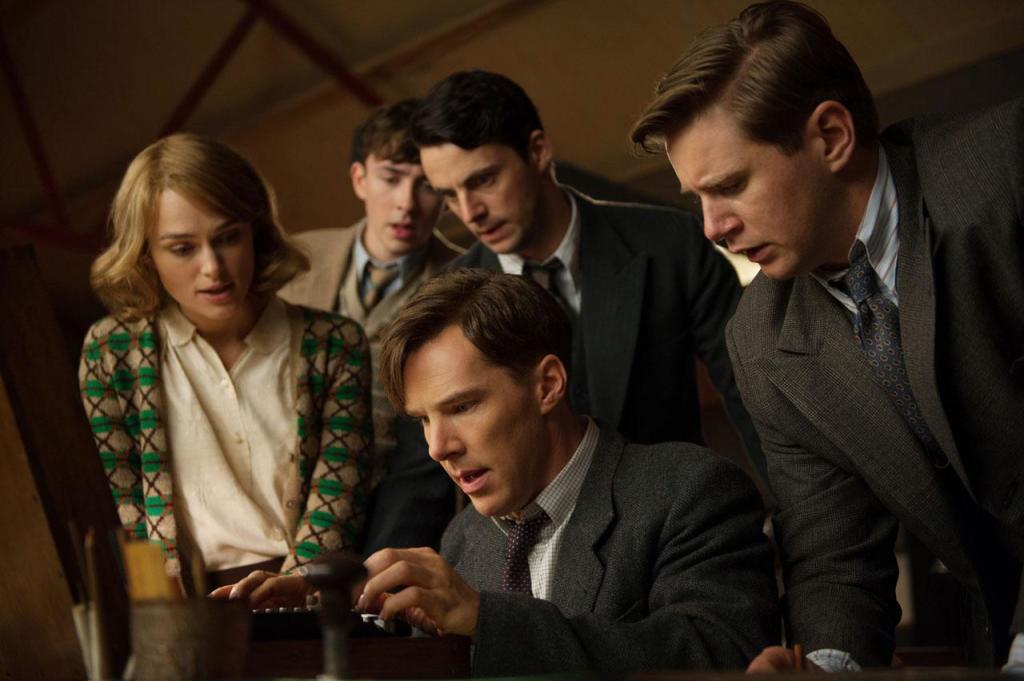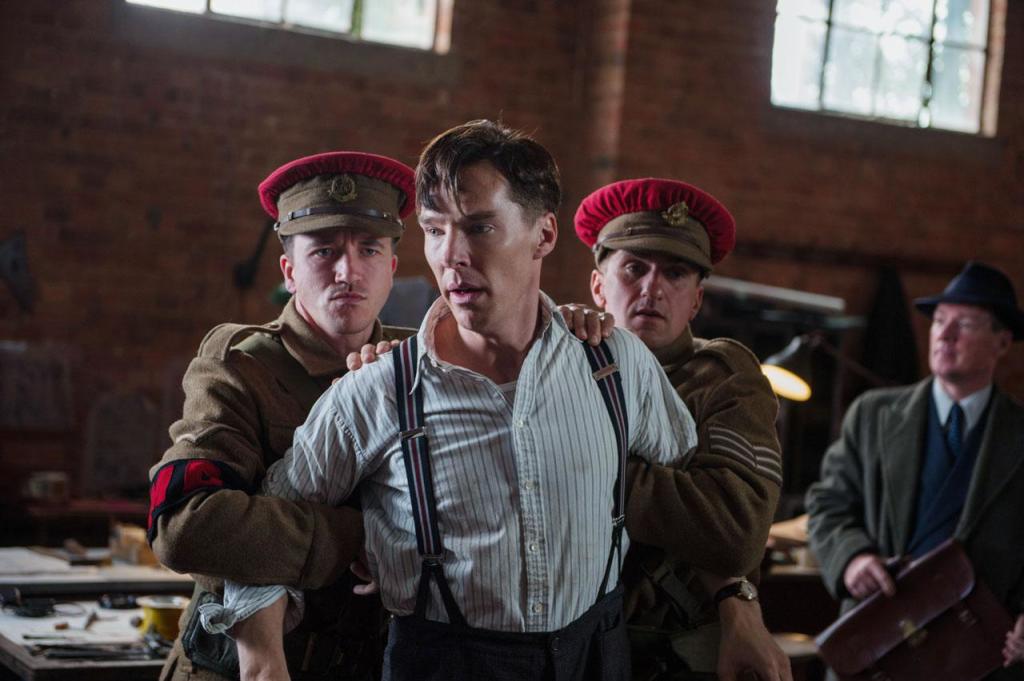
Directed By: Morten Tyldum
Written By: Graham Moore
Starring: Benedict Cumberbatch, Keira Knightley, Matthew Goode, Mark Strong, Charles Dance
Rated: PG-13
Grade: B+
Whatever shall I say about a film like The Imitation Game? On one hand its a fascinating story told exceptionally well. On the other hand its one of those films that feels patently built for the sole purpose of winning awards. And even though it well may deserve some of those awards (like i said, it’s exceptionally well made) the piece as a whole feels just like every other true story set during World War II that gets thrown at us every awards season. Is it too much to ask for something more unique?
This is an especially pertinent question when you consider the subject matter of this particular story. Alan Turing (Benedict Cumberbatch) was not only the man who ended up cracking Nazi Germany’s impenetrable code and thus ending the war much sooner than possible. He was also a sort of godfather of computers. And on top of those two achievements he also happened to be gay in a time when it was illegal and harshly punished by the law.
This was no ordinary man and to see his story told in such a straightforward and uninspired way is kind of a letdown.
The Imitation Game tells Turing’s story through three different periods of his life all cut together in a manner that at first seems intriguing but ends up being your pretty standard set of flashbacks and flash-forwards. A vast majority of the film is spent during World War II where we meet Turing as a genius mathematician volunteering his services to his country during wartime by promising to break the code for the Nazi’s impressive Enigma decoding machine.

Some of the people forced to deal with his self-assured demeanor during wartime included his superior officer, Commander Denniston (Charles Dance); the original head of the code-cracking team,
But Turing also had to prove himself to those that he recruited to the team. The most important of these characters is Joan Clarke (Keira Knightley), a brilliant young woman who must lie to her parents and say she is merely being a secretary at the military base so as not to be thought of as living and working indecently surrounded by all men. As the story plays on, she becomes one of the few confidants that Turing has and they strike up an unconventional love that leads to an even more unconventional engagement.
But as the World War II-centric story of cracking the Enigma machine by building their own code breaking computer goes on we are treated to flashbacks of Turing as a young student (Alex Lawther) falling desperately in love with one of his classmates. These scenes are counterbalanced by flash-forwards to the early 1950s where Turing is being investigated by police for homosexual acts. These particular scenes are heartbreakingly sad and lead to an even sadder conclusion for the film as a whole but don’t really add a lot until the very end, making their inclusion throughout the film feel a bit tedious at times.
But if anything is true about The Imitation Game its that Cumberbatch carries it all with a tremendous performance that is a joy to watch even as he is breaking your heart. As a character who is hated by a majority of all other characters for most of the film, Cumberbatch manages to immediately put the audience on his side and keep us there for the entirety of the film even at moments when his prickly demeanor would have us abandon him in the hands of a less capable actor. By the end of it you really just want to squeeze him in a bear hug and tell him how great he was and how many lives he saved. In short, don’t be surprised to see Cumberbatch being named as an Oscar nominee a few months from now.
The rest of the cast gamely keeps up with Cumberbatch in a supportive nature that is generally strong but no one else is given the individual dramatic goods to stand at his level. Knightley has a few strong scenes but this feels so similar to much of her previous period drama work that I don’t expect to see too many accolades being thrown her way when all is said and done.

